In Wake Of Recent Attacks On Schools, Boundary Walls Are Essential
For the last 10 years, attacks on schools by Taliban insurgents have been almost unheard of. According to a recent New York Times article, Taliban school attacks “proved so unpopular with communities that the insurgents announced that they would not be continued, even claiming to support girls’ education.”
Things changed on April 11 when insurgents struck a girls’ high school in Logar Province and set it on fire. A separate assault was conducted on a school in Nangarhar Province the following Saturday. Labs and archives were reportedly set ablaze.
Although both operations occurred at night and no students were harmed, the attacks signify a shift in tactics by the Afghan militants.

What does this mean for CAI-supported schools?
Upon receiving news of the attacks, CAI’s implementing partner Star of Knowledge (SKO) immediately sent field officers to Logar and Nangarhar to evaluate the situation and check on schools supported by CAI. Khwaja Mughal Khil Primary School, built by SKO in 2013, is not far from where the attacks happened in Logar. Asadullah Azimi, senior education officer for SKO, wrote to us about how the community reacted to recent events.
“It is good news that Mughal Khil School was not attacked physically; however, psychologically, all schools existed in that area were attacked,” he wrote. “Teachers and school administrators were terrified. Students were not sure what will happen to them.”
School security is a complicated issue in war-torn Afghanistan, but Azimi feels strongly that student security cannot be assured unless classrooms are safeguarded by boundary walls. He feels that the lack of boundary walls at the schools in Logar and Nangarhar made it easier for them to be attacked.
“Lack of boundary walls definitely made it easy and possible for attackers to confidently carry out their job because there is no single gate to enter through nor is there anyone to stop them,” he told Central Asia Institute.
Standing over 6-ft high with a fortified security gate monitored closely by a guard, or chokidar as they are called, boundary walls are significant deterrents for wrongdoers. With these security measures in place, schools become much less appealing targets for potential attackers, which is why boundary wall construction is a major priority for Azimi and SKO.
Fear in the community
Khwaja Mughal Khil does not have a boundary wall, and the community has serious concerns in the wake of recent attacks.
One parent told SKO, “I am concerned about the future of my children. If such attacks continue, I will never allow my daughters to attend school so that they will remain illiterate.”
A boundary wall is the only thing in this parent’s mind that would make them comfortable with the idea of sending their child to school in a hostile environment.
Students too struggle with their fears. For those who still attend class, every day is a risk.
“Sometimes, I am not mentally present in the classroom,” said one student. “I look out of the window feeling that someone will attack.”
Children should never have to choose between their education and their safety.
Fortunately, in recent years attacks have been few and far between and not directed at CAI-supported schools. The attacks in early April were a major deviation by militants from previous tactics, a deviation that CAI and SKO hope will not be repeated. In the meantime, communities and organizations like SKO are doing their best to safeguard the children.

Recent construction on a primary school boundary wall in Nangarhar.
This spring, CAI is raising money to support boundary wall construction. Our aim is to protect as many children as possible. Construction has already started on some of the walls, thanks to generous supporters like you. Later this week, we’ll share updates and pictures with you so you can track SKO’s progress and see the faces of the children you are protecting.
Click here to learn more about the importance of boundary walls and what you can do to support construction. Feeling empowered and want to help more children feel safe in school? Donate now!
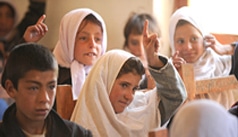


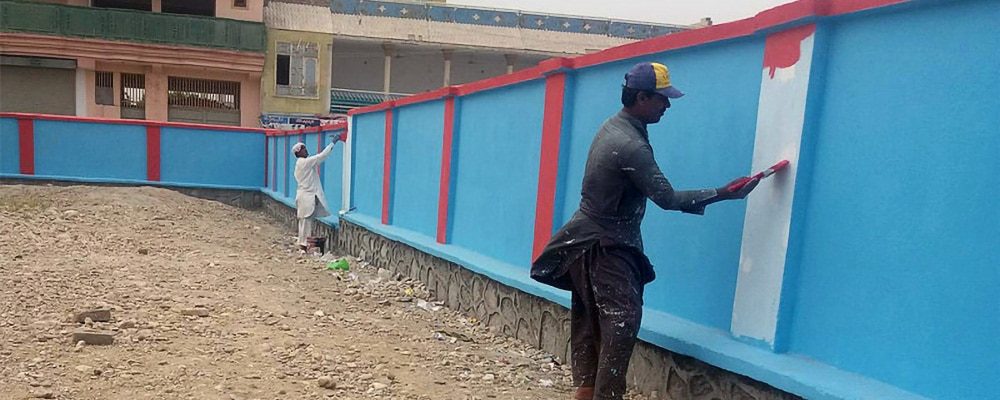

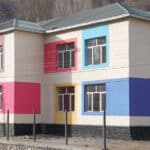
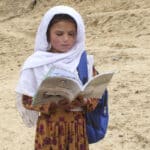
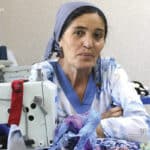




8 responses to “In Wake Of Recent Attacks On Schools, Boundary Walls Are Essential”
Thank you for communication. Please continue.
Dear Kibbey,
Thank you so much. We will do our best to keep you connected with the children, women, and men overseas. If there is anything in particular that you would like to hear about or blogs you’d like to read, we would love to hear about them. Have a lovely day.
All the best,
Hannah White
Thank you for the information.
Thank you for the information. I believe my monthly donations are being used wisely. I am glad no children were hurt.
Dear Louise,
We are so grateful for your monthly support. You are the backbone of the work we do, and make it possible for the children to depend on us month after month. Let us know if there is any additional information we can get for you or other blogs you’d like to read in the future.
All the best,
Hannah White
Communications Director
Can the men in the communities provide security services for their children’s school so that they can get educated without being fearful.
Dear Renate,
The men of the village are usually the breadwinners in their families, so it is difficult for them to take off work. Many schools employ a guard to provide some security as a partial solution, and of course we could not do the work we do where we do it without the support of the community in general. It is an excellent idea and one that may have to be explored further if violent conditions continue. Thank you for sharing your thoughts!
All the best,
Hannah White, Communications Director
The communication is very important, this keeps us motivated. Keep up the good work.